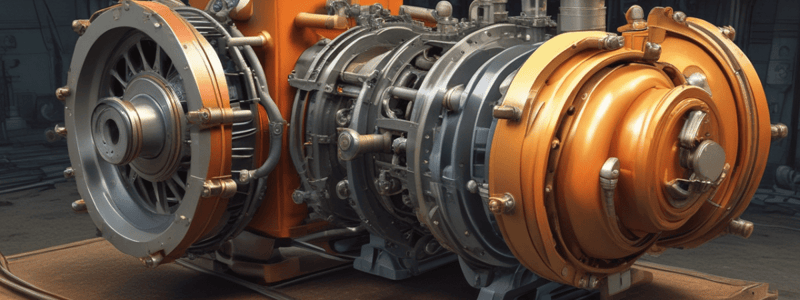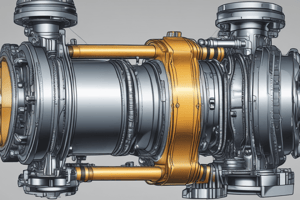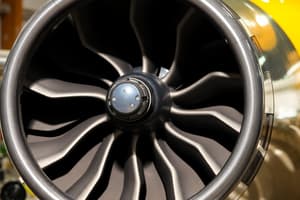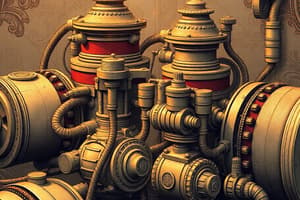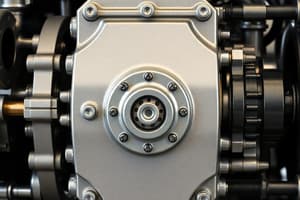Podcast
Questions and Answers
What creates a pulsating flow of fluid in a reciprocating pump?
What creates a pulsating flow of fluid in a reciprocating pump?
- The discharge valve
- The cylinder head
- The suction valve
- The reciprocating motion of the piston (correct)
In a reciprocating pump, what happens during the suction stroke?
In a reciprocating pump, what happens during the suction stroke?
- Piston moves away from the cylinder head, creating a low-pressure area (correct)
- Fluid is forced out through the discharge valve
- Fluid is drawn into the cylinder through the discharge valve
- Piston moves toward the cylinder head, creating a high-pressure area
What is the function of suction and discharge valves in a reciprocating pump?
What is the function of suction and discharge valves in a reciprocating pump?
- Controlling fluid entry and exit (correct)
- Regulating pressure
- Creating pulsating flow
- Ensuring a constant flow rate
What is the principle behind reciprocating pumps?
What is the principle behind reciprocating pumps?
What type of pump is a reciprocating pump?
What type of pump is a reciprocating pump?
What component creates the reciprocating motion in a reciprocating pump?
What component creates the reciprocating motion in a reciprocating pump?
What is the function of the suction valve in a reciprocating pump?
What is the function of the suction valve in a reciprocating pump?
Which type of reciprocating pump uses both sides of the piston for suction and discharge?
Which type of reciprocating pump uses both sides of the piston for suction and discharge?
What power sources can drive reciprocating pumps?
What power sources can drive reciprocating pumps?
Why may reciprocating pumps require additional components like pulsation dampeners?
Why may reciprocating pumps require additional components like pulsation dampeners?
Which type of pump is suitable for high-pressure applications?
Which type of pump is suitable for high-pressure applications?
Which pump type has a generally higher efficiency for low to moderate pressures and high flow rates?
Which pump type has a generally higher efficiency for low to moderate pressures and high flow rates?
Why are seals, valves, and packing in a reciprocating pump more prone to wear and tear?
Why are seals, valves, and packing in a reciprocating pump more prone to wear and tear?
